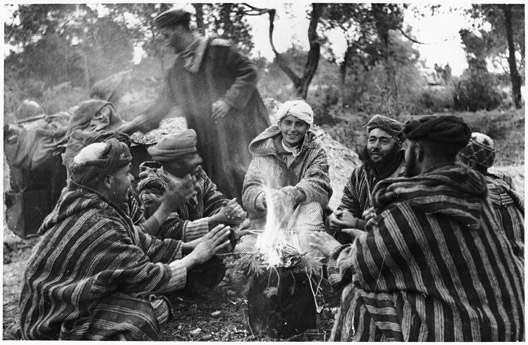Fr : version française / En: english version
Like a great sun
A vital ingredient in expressing human warmth, fire is often a part of gatherings involving family and friends. Evenings spent sitting up around the fire and soldier, cowboy, hippie and scout campfires are two examples. We gather round the fire, share a hot dog or grilled marshmallow, take out a guitar and sing about friendship and brotherhood.
L'on ne voit rien que feux
L'on ne voit rien que feux, l'air est tout enflammé
Le ciel est tout rougi, à peine la lumière
Des astres apparaît, l'ombre s'enfuit derrière
Cette nuit-ci ressemble un beau jour allumé !
Mais hélas ! Dedans moi Amour trop animé
Fait croître à tous moments une flamme meurtrière
Et pour l'entretenir mon cœur sert de matière,
Et dans l'eau de mes yeux je serai consumé
Ces feux qu'on fait ici, ce sont feux de liesse,
Mais le feu qui me brûle est un feu de tristesse
Qui me fait vivre en peine et mourir en tourment.
On danse, on chante, on rit autour de cette flamme,
Moi je pleure et soupire, en en pleurant mon âme
Gémit autour du feu qui me va consumant.
Isaac Habert, vers 1625
Georges Brassens certainly ranks at the very top of the campfire hit parade! Campfires can also be an opportunity to scorch yourself in the fires of love...





























